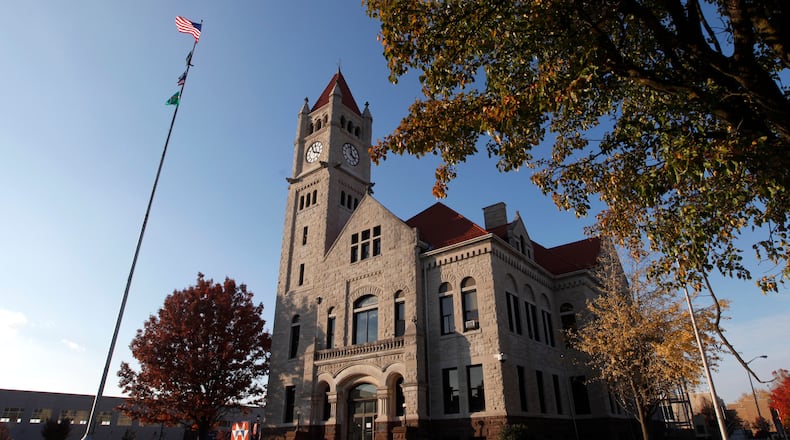Greene County has a nearly identical arrangement with the city of Xenia, which was established in light of the red-hot housing market, and the need for homes to be put back in productive use.
The original idea for this proposal emerged through discussions to create a Greene County land bank nearly a decade ago, County Administrator Brandon Huddleson said during the commissioners’ meeting Thursday.
“There were two reasons why, two big benefits that we were going to get from a land bank,” Huddleson explained. “One was demolition money that would come down (from the state). Two was expedited foreclosure. So we looked at the expedited foreclosure piece and came up with this agreement ... and then, with the demolition money, the state legislature has found their way clear, on several occasions lately, to allow you as a board to designate the lead entity for disbursing those funds.”
Waivers for property taxes must still be requested, but the necessary number of them will be far less moving forward as a result of the agreement, said Emily Gay, Communications Manager for the city of Fairborn, adding that the city “appreciates the great working relationship with Greene County and the shared vision of prosperity for the county.”
“Redevelopment of these vacant lots will positively contribute to the existing neighborhoods, the tax base and provide additional housing options for those wishing to live in the city,” she said.
The agreement only applies to residential property. Commercial and industrial foreclosures will be considered on a case-by-case basis.
Most of Greene County’s delinquent tax properties are concentrated in Xenia and Fairborn, the county’s two oldest cities. Many of the properties are vacant or abandoned, in some cases because the property owner has died.
Not all delinquent properties are subject to foreclosures. Being delinquent on property taxes means the property owner is a year and a half behind on their taxes. Missing one or two tax payments isn’t enough to be declared delinquent.
Many taxpayers are able to pay off their tax debt by opting into a payment plan, Greene County Auditor Kraig Hagler previously told the Dayton Daily News. Others pay it off upon initial notice from the treasurer’s office.
If a case does go fully to the foreclosure process, the owner is notified through the courts. The property then goes to a treasurer sale, where the selling price of the property includes the back taxes, assessments and court costs that are on it.
Usually, the property doesn’t sell for that reason, Hagler said.
“If you’ve got $14,000, $15,000-plus of delinquent taxes, and the city’s weed mowing fees, they’re never going to sell,” Hagler previously told the Dayton Daily News. “Nobody’s going to pay $17,000 $15,000 for a piece of property. It’s just not worth it.”
If the parcel doesn’t sell a second time, it’s forfeited to the state of Ohio, or the local municipality can acquire the property and petition the taxing authorities (the county, schools, etc.) to forgive the taxes on it so it can be put into productive use.
Greene County greenlit its end of the proposal Thursday, and Fairborn City Council will consider it Monday.
About the Author

